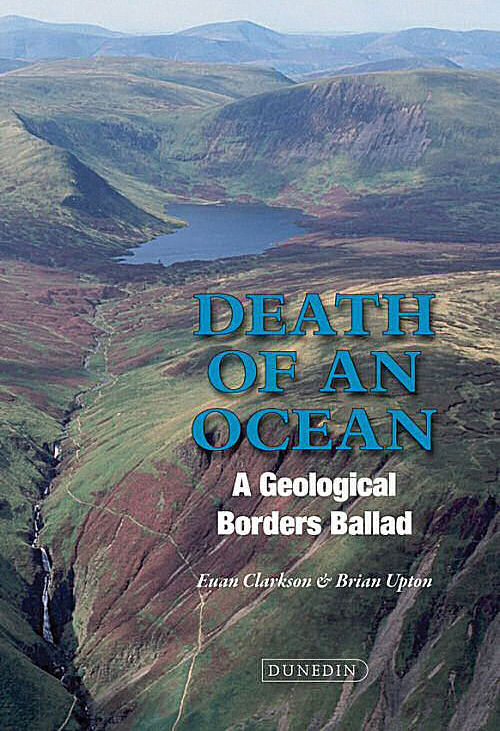Death of an ocean: A geological Borders ballad
By Euan Clarkson and Brian Upton

The Scottish Borders region is famed for its frontier history, and attendant myths and ballads. Death of an ocean is concerned with their more ancient geological history, which is revealed by their rocks.
These indicate that the area was once on the edge of a huge ocean and the authors tell how this once great ocean – the Iapetus – which met its end through the inexorable crush of tectonic plates bringing continental masses on a collision course.
The impact of these continents spelled the deathknell for Iapetus and, in so doing, brought about intense folding and the uplift of huge quantities of ocean floor sediment to form the mighty Caledonide mountain chain.
These momentous events brought the essential building blocks of Scotland into their final positions. After attaining their maximum grandeur, the Caledonide Mountains were progressively eroded to become shadows of their former glory.
Meanwhile, the unified tectonic plate on which Scotland sits proceeded to drift northwards. In so doing, ‘ancestral Scotland’ migrated from the southern hemisphere, across the equator, ultimately to reach its present temperate position.
The rocks of the Borders record much of the Palaeozoic history of the closing of the ocean, the building and subsequent breakdown of the mountains, as well as the history of the deserts, rivers and forests that came and went on its northerly migration. This Borders story also tells of volcanoes, large and small, and how their existence is indelibly recorded in the hills and describes the latest geological events to sculpt the landscape – the Pleistocene ice ages.
Intended for those wanting to learn more about the origins of a popular region, this book will also appeal to geologists on field trips and students of geology.
Death of an ocean: A geological Borders ballad, by Euan Clarkson and Brian Upton, Dunedin Academic Press Ltd, Edinburgh and London (2009), 210 pages (hardback), ISBN: 978-19-06716-02-8